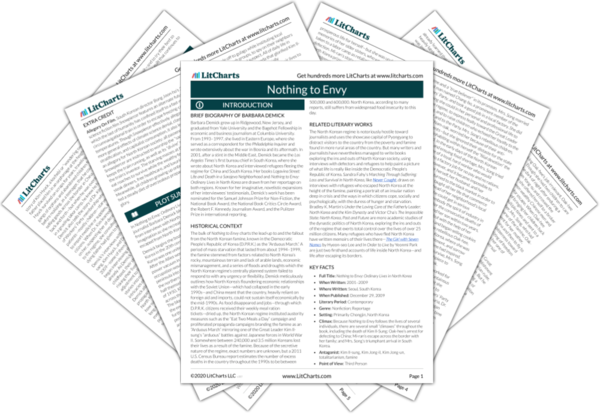Even though Dr. Kim had always done all she could to prove her loyalty to her country, she nonetheless found herself on a watchlist of suspicious individuals. Dr. Kim began to realize that there was nothing she could do that would ever be sufficiently—no matter how hard she worked or how much of herself she gave, she lived in a regime that could not control its citizens enough. Ironically, Dr. Kim’s run-in with the Bowibu, which was meant to scare her off the idea of defecting, had the opposite effect: she realized that the atmosphere of misinformation, surveillance, and isolationism in which she lived was no longer acceptable.
